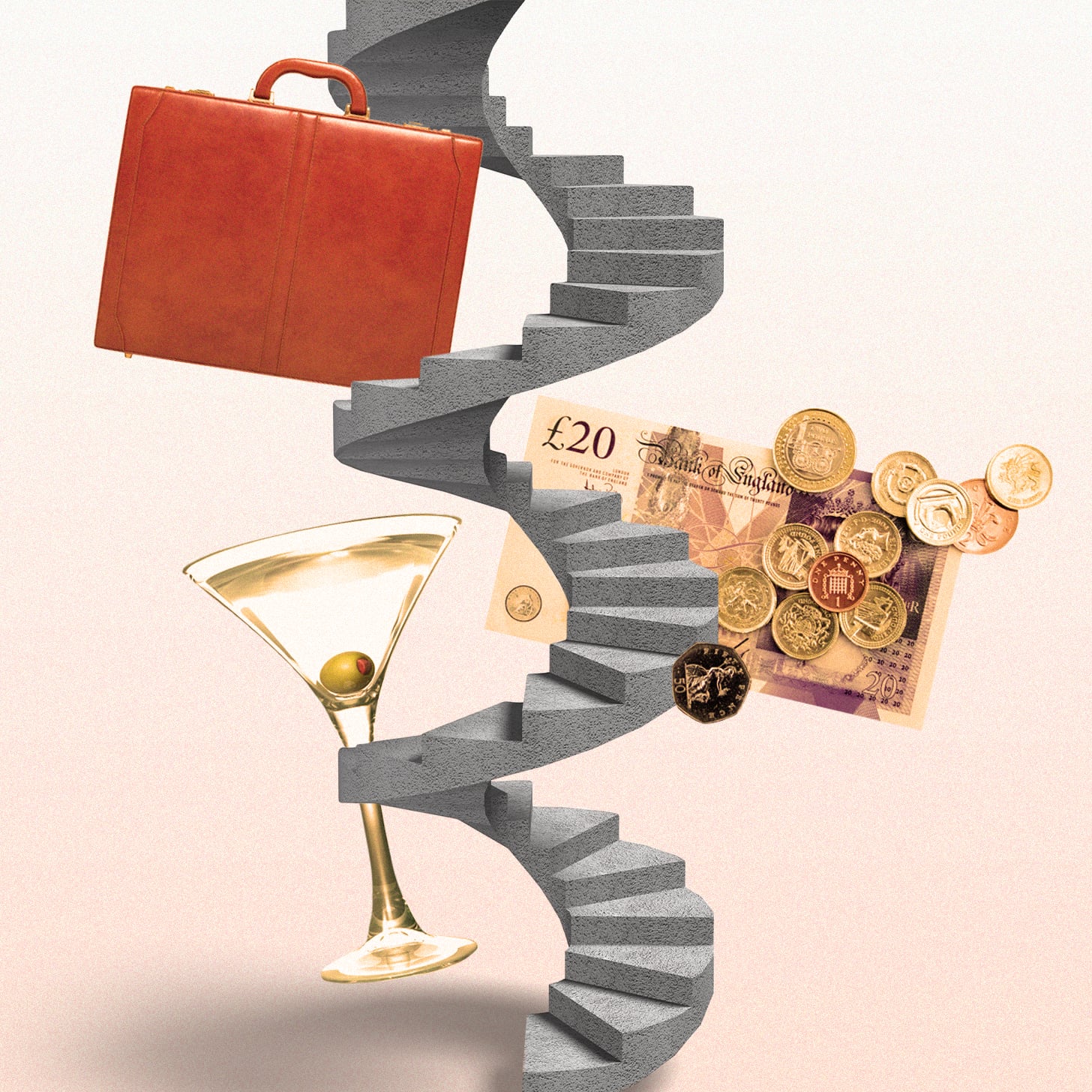Class Bias Is Affecting our Self-Worth
Class Bias Is Still Alive and Well in the UK, and it’s Affecting Our Self-Worth

The concept of a working class hero is legendary, permeating the films we watch, the music we listen to, and the stories we tell. Consider the popularity of "Trainspotting" and TV show "Shameless", as well as the rags-to-riches charm of "Pretty Woman" or "My Fair Lady". But the reality of being from a lower social class and making your way in the world is far less straightforward and glamorous.
A study commissioned back in 2018 found that working class people believed they encountered a "class ceiling" which held them back in cases where they didn't understand or fit in with middle class cultural norms. And it seems that things haven't really improved — a 2022 study by Queen Mary University found that "accent bias" is still very prominent in the UK, with 46 percent of adults saying their accent was singled out or taunted in social situations, and many admitting they felt pressure to change the way they speak, softening it down or even masking their accent.
The stigma around coming from a working class background is, unfairly, still rife. This perception doesn't just affect your ability to advance financially, it impacts your social standing, your ability to progress at work both professionally and socially, as well as how you value your self-worth when dating and building relationships. It can ultimately make people feel like they need to change who they are, or present themselves differently. This behaviour has been coined as "class passing", and it's exacerbated by social media and our innate need for acceptance.
"When we live in a society with others, we tend to understand our 'place' in the pack through acknowledging ourselves in comparison to others – with the goal being access to resources," psychologist Dr Audrey Tang explains. "In humans, we are fighting less over a perceived scarcity of food and water, but (especially in the social media world), a need for acknowledgment and validation."
"When we live in a society with others, we tend to understand our 'place' in the pack through acknowledging ourselves in comparison to others"
Margot, 29, works at a recruitment firm in the Midlands, and has felt pressure to mask her working class background since she entered the workplace. This changed the way she spent her money and socialised with her colleagues. "I quickly picked up that people at work were carrying Aspinal of London purses, so I ordered myself one," she says. "I would be frivolous with money when I'd go out with people from my work, even if it wasn't being spent on things that I was interested in. I felt pressure to understand wines and Michelin star restaurants, because it was easier to conform in that way and be taken seriously. People outside of my colleagues' social class are perceived as a threat. They find comfort in similarities with others, like having gone to the same school." While she now feels more comfortable after a few years in the industry under her belt, Margot admits that "deep down my insecure working class self is doing it to try and fit in."
Anxiety expert, psychotherapist, and mindfulness coach Dr Belynder Walia suggests that class bias has evolved in modern society, and can be harmful thanks to, you guessed it, the compare-and-despair cycle of social media. "The class system has always been present, but it is more evident nowadays because social media platforms have exposed so many to identify the middle-class, upper-middle class, and the elite," she says. "Sadly, the belief system young adults have developed over the years when belonging to these social norms has now affected their happiness."
These problems don't just present themselves in the workplace, either, it has translated into the dating world, too. Research into "assortative mating" – people choosing partners who are similar to them – has found this behaviour to be a key component of social inequality, as it often leads to people dating someone from the same social class. Dating apps for "educated" people like Elite Singles further encourage a polarisation between classes when it comes to choosing a romantic partner.
Cassie, 26, has found dating since moving to London an at-times awkward experience, due to the pressure to hide elements of her working class background – and it's more complicated than just diluting her regional accent. "Even if you're dating someone with a similar income to you, if you're from a different class background or upbringing your attitude towards money is different, and can cause complications," she says. "Someone may think nothing of eating out more, spending more on drinks, takeaways, rent, you name it. I've found myself whacking the costs of dates on credit cards in order to mask my anxiety at this – talking about it is really difficult."
"[T]o feel a sense of belonging, you have to know your self-worth"
Of course, the solution to such a huge societal problem is complicated, and urgently requires changes made at a governmental level in educational spending, as well as workplace recruitment and culture. But when it comes to handling these pressures as an individual, experts have recommended focusing on two things: authenticity and self awareness.
Dr Tang recommends acknowledging that we sometimes have to "act" or "adapt to the terrain" to get what we want, and practicing authenticity to keep us grounded. To do this, she says it's important to reflect on your USP — what you bring to the table — and practice gratitude and pride in these attributes.
And if you're looking to reduce your "class passing" behaviour, Dr Walia advises working on not denying aspects of yourself. "The best way to avoid lying or pretending to fit into middle-class norms is to be very self-aware," she says, advising that it will then be "easier to accept the good, bad, and ugly aspects of yourself, including your life."
She adds that "to feel a sense of belonging, you have to know your self-worth", which is crucial — no matter what social class you hail from.






